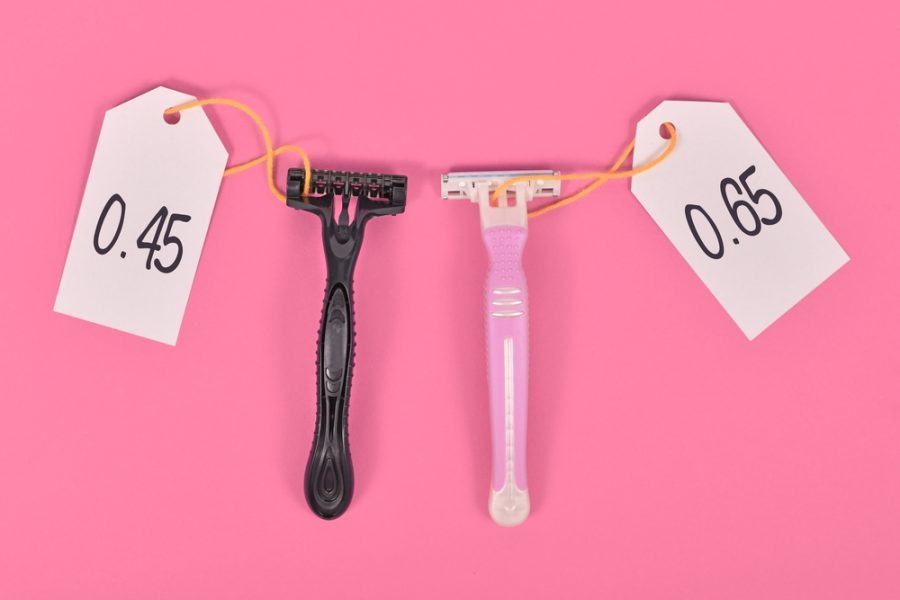Axe the Tax
The “pink tax” has recently become a topic of debate in everyday society
Photo courtesy moneysmartmanitoba.ca
The pink tax can be shown by the small, but drastic, price differences of razors.
April 20, 2023
Researchers and consumers alike have observed that women’s goods are priced or taxed more heavily than men’s. This phenomenon, which has lasted for decades, has become known as the “pink tax” in modern-day culture.
The pink tax is present in almost all women’s products, from shaving cream and razors to children’s toys. The only difference between the items, besides the price, is who the market audience is.
Companies have been known to adopt the saying “Shrink it and Pink it,” which essentially means to make a smaller product and markup the price when advertising to women. This marketing strategy can be seen in simple items such as women’s deodorant and razors.
It’s not just consumers who are noticing this price discrepancy, as many researchers have studied the effects and extents of the pink tax. A research article conducted by Texas A+M showed that the pink tax starts when companies have to pay higher tariffs for women’s clothes and items, which in turn causes them to mark up the prices in stores.
Professor Lori L. Taylor was the lead researcher on this project and discussed the ramifications and lasting impact of this tax.
“Tariff rates on women’s goods are sometimes 10 percentage points higher than those on similar items for men, like suits, jackets, leather shoes, silk shirts and overcoats,” Taylor said.
In a 2023 research study conducted by The New York Times, women’s products were shown to cost around 13% more than men’s on average. This increase in price, combined with the fact that women make 16.3% less than men on average, leads to women paying 29.3% more for daily products such as clothes and toiletries. The pink tax is known to cost $1,300 a year per woman, which adds up in large households.
Jackson Griffith (12) has not been affected by the tax, but has noticed its effect on his mother and sister.
“The production of the feminine products that have masculine counterparts can’t be that different than of men’s products, so the companies should have the prices match,” Griffith said.
While the pink tax primarily affects Americans, other countries have noticed this effect within themselves, and some have even banned the tax. Austria, Germany and Canada are among the countries who have banned the luxury tax on feminine hygiene products alone, and many more are considering following their lead.
Ellie Allen (11) has noticed the effects of the pink tax on everyday purchases and hopes that something will be done to stop it.
“I think that the United States should follow other countries example of banning the tax, such as Canada and parts of the UK,” Allen said.
While the U.S. as a whole has not banned the pink tax, states like New York and California have banned the pink tax. They aren’t the only ones, as a bill to axe the pink tax has recently made its way to the South Carolina state government, as it has already been passed in the State House of Representatives.
The pink tax doesn’t stop at women’s clothes or daily items, as there is also a luxury tax on women’s hygiene products, even though half of the United States population uses them on a regular basis to help them continue with every day activities.
This tax has recently become highlighted in a fight for equality, and many hope that they will be able to see some change in the upcoming years. The slogan “Axe the Tax” has become increasingly popular when referencing the pink tax and its counterparts.
Allison Little is a psychology teacher who has noticed the price discrepancy when purchasing items for both herself and her class room.
“Supplies like razors, shaving cream and deodorant should not cost more or be taxed more because they are advertised for the female population,” Little said. “I am hopeful that significant change can happen. It may help in gaining traction for a continued fight in equity among the genders.”





